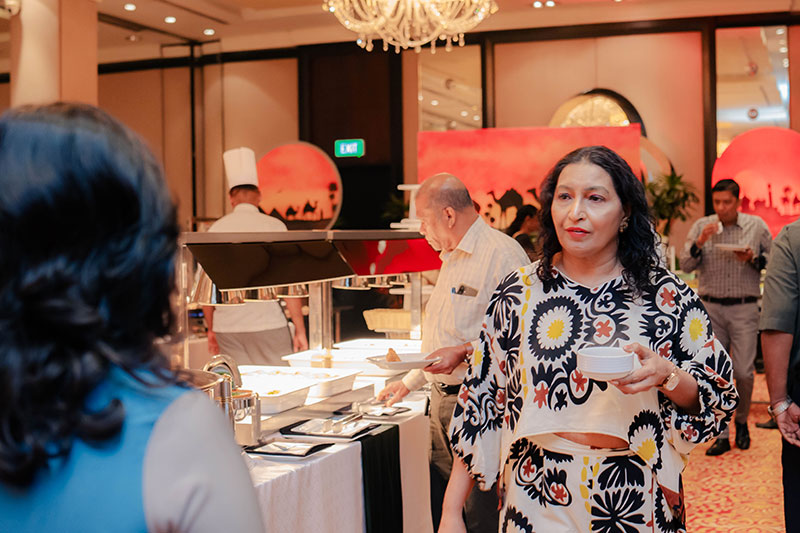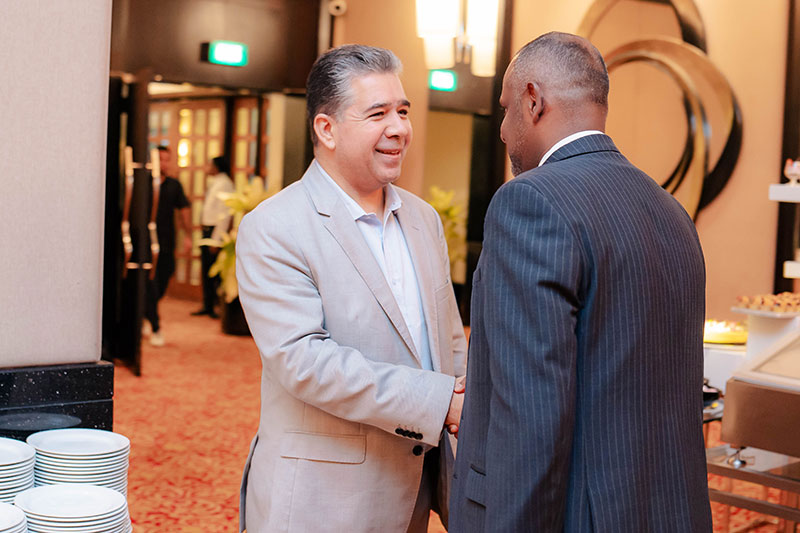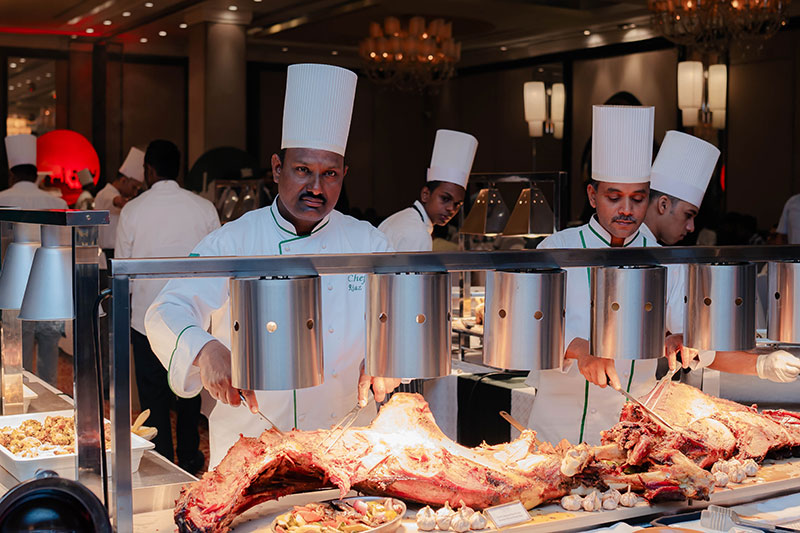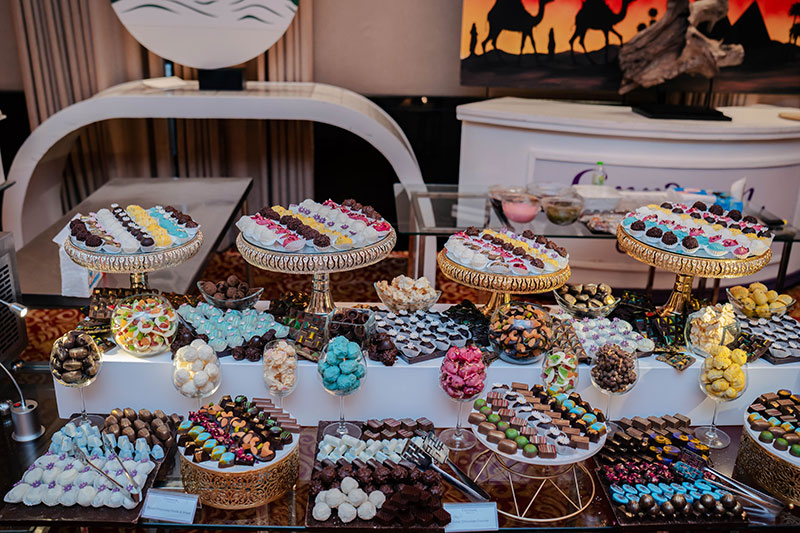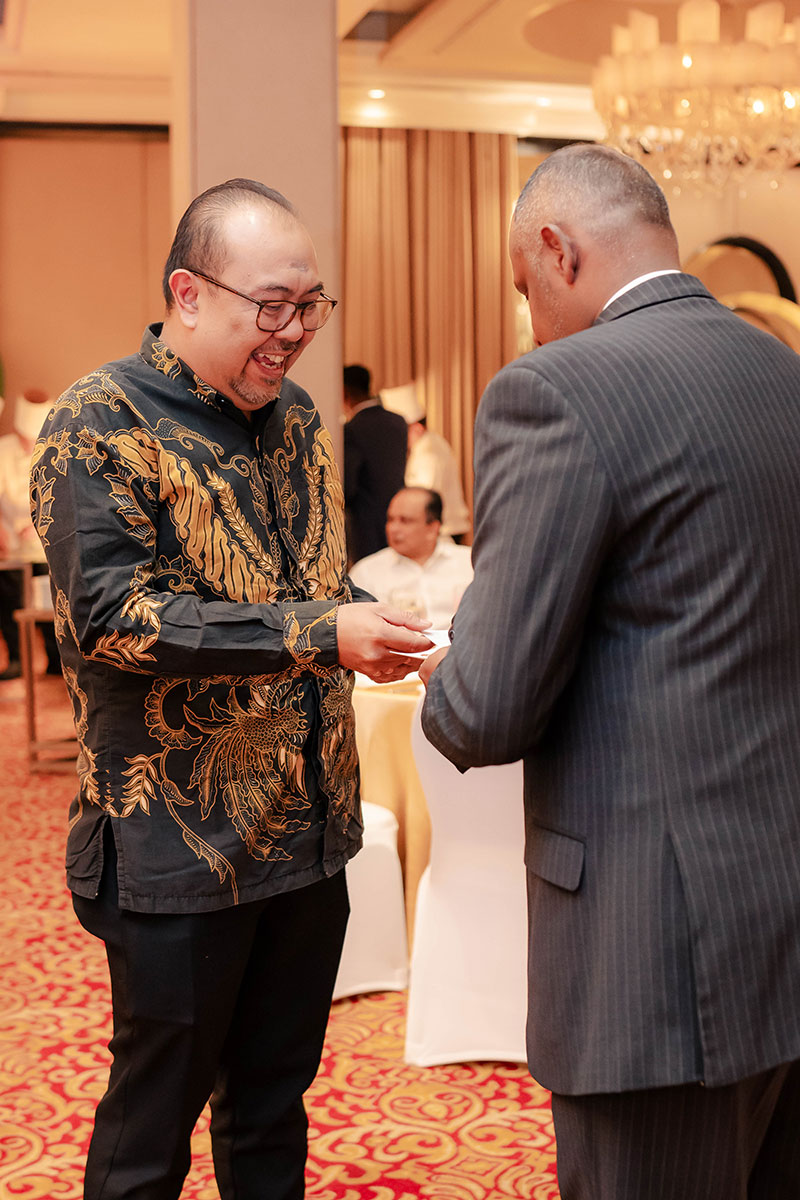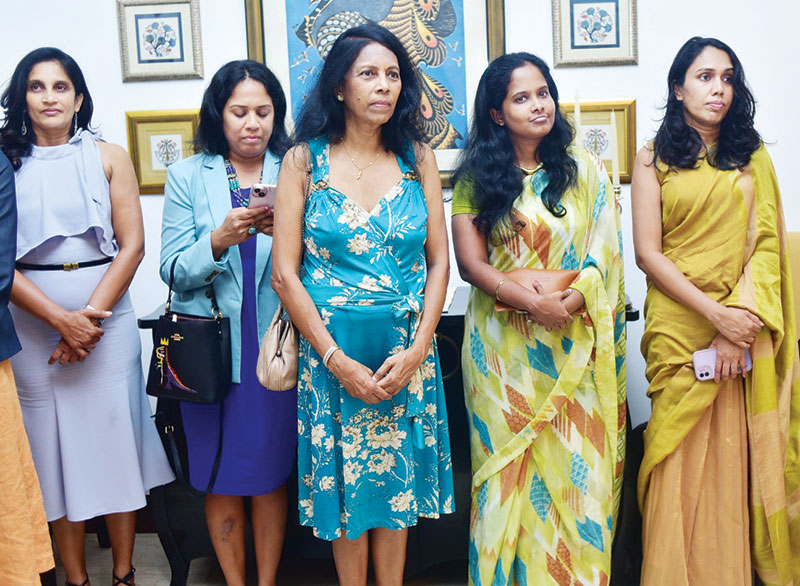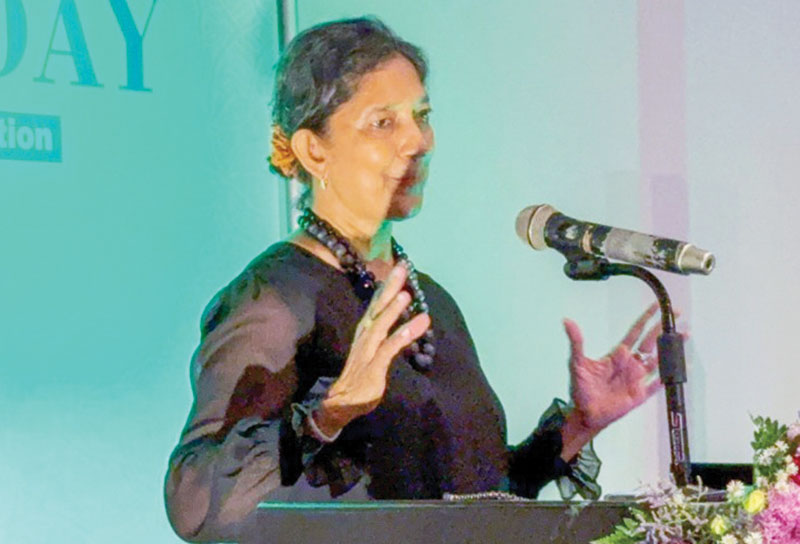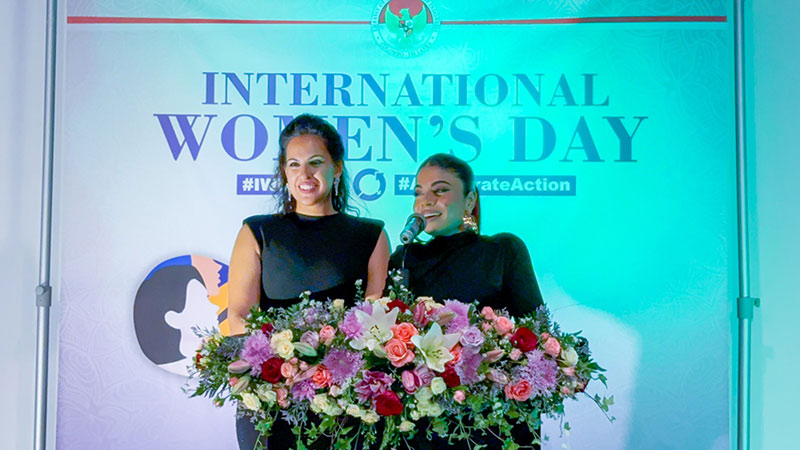Life style
Politics is still dominated by men in Sri Lanka
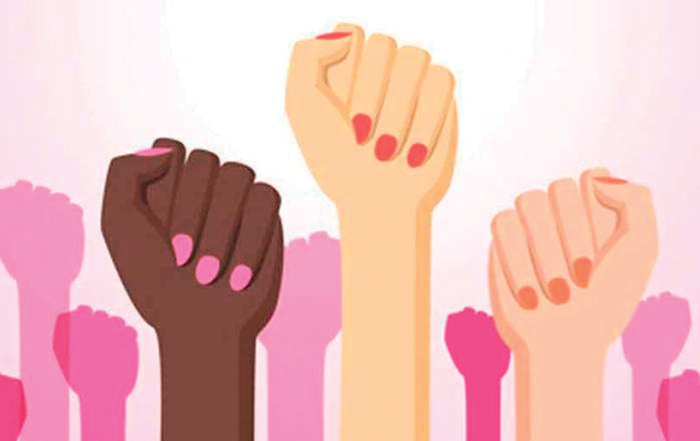
By Zanita Careem
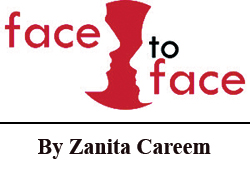 Women in Sri Lankan politics have come a long way, but they still face many challenges. From early pioneers who broke barriers to modern leaders making strides, the journey has been both inspiring and difficult. Despite laws and policies aimed at promoting gender equality, societal norms and structural issues continues to hinder women’s full participation in politics. Although Sri Lanka elected the world’s first female PM in 1960, over six decades later, the country’s political arena continues to be male dominated. Women represent over 52% of the country’s population yet men continue to play a dominant role, in the national legislature while globally there is increased legislators and diversity in politics, Sri Lanka too needs to welcome more women in leadership and political spaces to break political bias. This is the only way to ensure inclusivity, equality and genuine democracy.
Women in Sri Lankan politics have come a long way, but they still face many challenges. From early pioneers who broke barriers to modern leaders making strides, the journey has been both inspiring and difficult. Despite laws and policies aimed at promoting gender equality, societal norms and structural issues continues to hinder women’s full participation in politics. Although Sri Lanka elected the world’s first female PM in 1960, over six decades later, the country’s political arena continues to be male dominated. Women represent over 52% of the country’s population yet men continue to play a dominant role, in the national legislature while globally there is increased legislators and diversity in politics, Sri Lanka too needs to welcome more women in leadership and political spaces to break political bias. This is the only way to ensure inclusivity, equality and genuine democracy.
In an interview with Dr. Deepika Udagama, Sri Lanka Professor of Law at the University of Peradeniya, she said women in politics are essential for representative governance. However while global statistics for female representation in governments worldwide continues to improve, equal participation of women in Sri Lanka is still a far fetched goal. Here are excerpts of the interview.
We received the right to vote in 1931, gave the world its first woman PM. Sri Lanka still remains hopelessly behind in terms of equal representation of women in politics both local and at national level? Your opinion
First, let’s recognize that women’s political representation is essential not just as an end but as a means to an end. Women’s increased participation in politics is required for women to be heard at various policy-making levels so that their issues and concerns and lived realities are factored into decision-making.
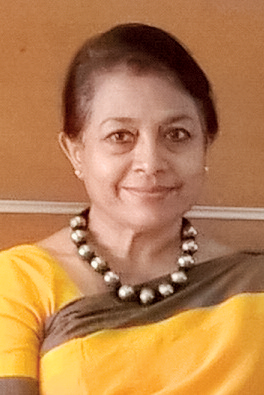
Dr.Deepika Udagama, Professor of Law at University of Peradeniya. She served previously as the Chairperson of the Human Rights Commission
It is encouraging to observe a surge in the number of women elected to parliament at the recent General Election. My understanding is that 21 women have been elected to Parliament (19 from NPP and 02 from SJB), and there may be a few more named in the National Lists. However, the numbers are still very insignificant given that women constitute nearly 52% of the national population and form the bulk of the voters. One could also observe the large numbers of women enthusiastically participating in election rallies in recent months. Who can forget the dynamic role played by women in the Aragalaya? However, it appears that women are eventually counted on for their votes, not so much for the contribution they can make as political representatives to national development.
It’s no secret that there wasn’t a single female candidate at the recent Presidential Election as well. We also know that there have been very few women parliamentarians appointed as cabinet ministers in the past. Despite the recent increase in the number of elected women MPs, the current cabinet too has only two women, including the Prime Minister. It is very disappointing to note that there isn’t a single woman among the Deputy Ministers.
It is also observed that, women cabinet ministers in Sri Lanka have yet to be assigned portfolios that are conventionally considered to be ‘important’ such as finance, defense and foreign affairs although our South Asian neighbors have made those advances. I do believe that after President Kumaratunga this is the first time a female minister is in charge of education. Such marginalization is a travesty, especially in a country which boasts around 92% female literacy and over 60% female students in public universities.
In the past few Parliaments of Sri Lanka, women’s representation hovered around 5.3%. Now it may go up to perhaps 10%-12% depending on the number of women coming in through the national lists of parties. Compare that with the present 33.1% female MPs in Nepal and 20% in Bangladesh. These are Inter-Parliamentary Union data. Of a total of 183 countries ranked as at October, 2024 , Sri Lanka stood at 175. The number 1 ranking was awarded to Rwanda with 63.8% female members of Parliament. Our ranking may go up slightly now, but as I said, in the larger scheme of gender equality in the country even the improved numbers make only an insignificant difference. However, we must build on recent gains and the 25% quota for women’s representation at the local government level introduced in 2016. We must seek quotas for parliament and provincial councils.
Challenges women face especially in the male political culture with deeply rooted social and cultural biases still exists. Do these obstacles for greater representation still persists? Your comments
Yes, of course they do. Public life is still very much a male bastion in Sri Lanka and elsewhere. We understand that gender played a role at the recent US Presidential Election where a sizeable segment of voters believed that they are still not ready for a female president. That’s due to socio-cultural factors. Some countries have, through national conversations on gender equality and with the intervention of inspiring political leaders and proactive civil society, made greater strides than others. African countries such as Rwanda and South Africa are examples.
Turning to Sri Lanka, one primary observation is that the high level of literacy among women has not necessarily translated into improving women’s empowerment in a socio-political sense. It’s almost a given fact that politics is still dominated by men. Even at the level of university student politics women are terribly marginalized. There’s yet to be a female president of a university student union or the IUSF. Patriarchy in the political party system is very much alive and well. Is there a single political party in Sri Lanka presently headed by a woman? A political party of which the General Secretary is a woman?
In contrast, who can forget the dynamic role played by large numbers of women in the Aragalaya? But come election time and party politics, that electrifying gender dynamic has not got translated into the massive shift in women’s political representation one could have reasonably expected. There’s been an improvement of course, but not a radical shift where all or most political parties felt compelled to nominate at least 1/3 of women in their nomination lists. So yes, male domination of politics and political parties is deeply structural brought on by our socio-cultural value base. At a broader level, I believe that educational reforms that focus on personality development and increase our democratic and civic consciousness is a key factor to changing these unacceptable realities aside from advocating for quotas for women in Parliament and Provincial Councils, and yes, in trade unions and student councils etc.
I feel the male model of politics and lack of internal democracy within political parties, may be some of the reasons? Your opinion
Correct. The Conventional model of politics is very male oriented. It is extremely confrontational, reliant on violence (physical, verbal, discriminatory etc.) and massive funding (whether legal or illegal) and encourages patron/client relations. A gentler and cleaner model of politics would certainly encourage female candidates. The past two elections were peaceful and dignified, so there’s future hope.
However, the questionable level of internal party democracy definitely contributes to the challenges women in politics face. Centralized party hierarchies (usually male centric) decide on all important matters including nominations, distribution of election funding, policies, strategies and so on without much consultation with rank and file. If a party does not have a strong women’s wing, women do not have much of a say in the internal decision-making. Any opportunities that come in the way of female members are viewed as concessions, not as entitlements. In Sri Lanka leadership is very personality-based and tends to be monolithic. I have always advocated constitutional or legal regulation of internal party democracy. There must be rules on non-discrimination and inclusivity within parties. How can political parties with authoritarian, non-inclusive hierarchies bring about democracy in a country?
Women make up more than half the voters but not a single women contest for Presidential elections. Financial constraints can be one of the causes for women not to take part in politics. Your opinion?
There are many forms of violence on women, psychological, sexual, physical and economic. Do these obstacles impede political participation?
. Gender equality was mentioned at the conference in Beijing in 1995 Do we follow these highlights and has Sri Lanka taken seriously these clauses? Are there any structural obstacles holding it back?
Women politicians around the world face more or less the same types of challenges, but to varying degrees. Use of violence as a political strategy always discourages women. There was a time in Sri Lanka when any politician who wanted to be ‘successful’ would have to possess a squadron of political goons. A few women became violent politicians, but others just gave up the idea of being active politicians. Hopefully, those are abominations of the past that will no longer be tolerated.
The most potent threat against women in politics is sexual vilification. It is cowardly, but in a conservative society such demeaning tactics work. It breaks the spirit of women. We’ve seen how women parliamentarians participating in debates were vilified by fellow parliamentarians in the recent past. One cannot recall formal action being taken against the miscreants. I note though that the current generation of women politicians is made of tougher metal. They will not give in or be defeated easily. However, the structural dimensions of political parties need a lot of work to achieve gender parity in politics.
Can you mention some of the steps taken by the former governments to rectify the shortcomings, have by any chance women have benefited ?
Introduction of quotas is the main method used to increase female political representation. Quotas can be introduced either at the level of nominations by parties or by reserving seats in elected bodies. The ‘Yahapalanaya’ government introduced a 25% quota for women in local government bodies. India introduced a 1/3 quota for women in the lower house of parliament and state legislative assemblies last year. A few decades ago India introduced a 1/3 quota for women in village councils (Panchayats) that has proved to be very successful. Rwanda which has the highest percentage of women in parliament at present also has adopted quotas. Around 138 countries have adopted gender quotas to increase women’s political representation.
Of course, much more needs to be done than adopt quotas. Civil society and the media should create a strong enabling environment for women to enjoy and advocate rights. Political education of women must reach a point where women actively shame and boycott political parties that marginalize women’s participation. The education system of the country must focus on creating a strong human rights ethos which includes sensitivity to non-discrimination including on the bases of sex and gender. Gender studies must be integrated into all disciplines than being confined to social sciences and humanities. Education must focus on personality development and make extra effort to strengthen women’s life experiences. Overall, the quality of women’s education must improve. Pressure must be put on political parties to create enabling environments that encourage women’s participation in politics including proactive recruitment and nurturing of young women community workers and political activists to take up active politics, political education programs for women and ensuring the inclusion of women in all decision-making bodies of parties.
One hopes that the Speaker and party leaders will create an enabling environment for women MPs to actively contribute to parliamentary affairs and punish any miscreants who belittle them. I do believe that the new women MPs are strong and smart enough to assert themselves and shout down and shame bullies and detractors. The Women’s Parliamentary Caucus should be more active and vocal on women’s issues and encourage more women to join their ranks. Much needs to be done to create a decent society where all have equal opportunities whatever one’s gender.
Life style
Celebration of unity and tradition at Iftar dinner
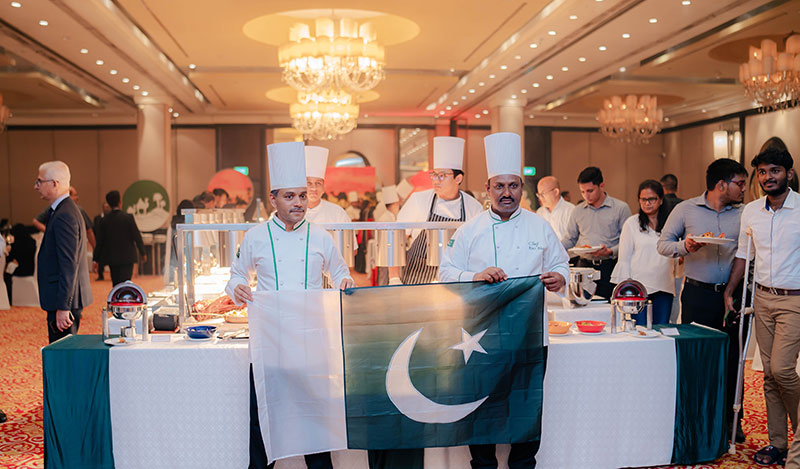
In a grand celebration of unity and tradition, Cinnamon Lakeside Colombo hosted an exclusive and elegant Iftar dinner at the prestigious King’s Court. This remarkable evening, hosted by Nazoomi Azhar, General Manager of Cinnamon Lakeside Colombo, brought together a distinguished gathering of ambassadors, key figures, top corporate executives, and esteemed members of the media.
The event showcased a spectacular array of culinary delights, with a highlight being the masterpieces crafted by renowned Pakistani Chef Riaz Bhatti. His exquisite creations, alongside an extensive selection of traditional and contemporary delicacies of Pakistani dishes, left guests in awe of the lavish spread and exceptional flavors.
Among the standout dishes of the evening were the rich and aromatic Mutton Raghni Josh, the flavorful Mutton Shahi Qorma, and the perfectly spiced Peshawari Beef Chapli Kabab. Guests also delighted in the Lahori Chicken Tikka Boti and the indulgent Chicken Peshawari Karahi, which added a taste of authenticity to the menu. The Iftar spread was further complemented by traditional desserts such as Gulab Jamun, Shahi Tukda, and Ras Malai, providing a sweet ending to the feast.
The atmosphere was one of warmth and hospitality, reflecting the spirit of Ramadan while offering a truly memorable experience. Guests were highly impressed with the impeccable service and the thoughtfully curated menu, making this Iftar dinner a standout occasion in Colombo’s social calendar.
Cinnamon Lakeside Colombo, under the leadership of Nazoomi Azhar, continues to set the benchmark for luxury hospitality, delivering unforgettable experiences through its commitment to excellence.
Life style
Women -building blocks in shaping history of Turkiye
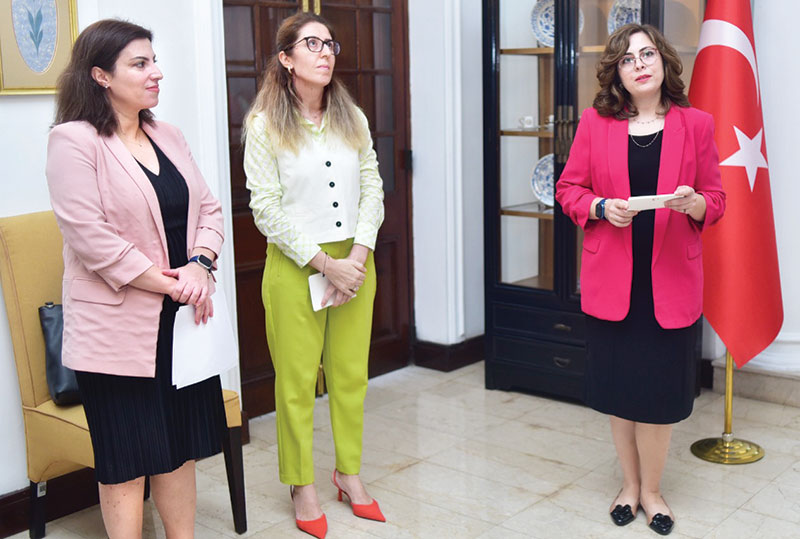
 In the Republic of Turkiye women have been one of the building blocks in shaping Turkiye for centuries. However, especially since the founding of the Republic, Turkiye has been one of the leading countries in the world, especially in terms of the political visibility of women. Women were given the right to vote long before women were given political rights in many democratic and modern countries.
In the Republic of Turkiye women have been one of the building blocks in shaping Turkiye for centuries. However, especially since the founding of the Republic, Turkiye has been one of the leading countries in the world, especially in terms of the political visibility of women. Women were given the right to vote long before women were given political rights in many democratic and modern countries.
Turkish women are known for their unwavering determination and resilience. They exhibit remarkable dedication and courage in pursuing their goals and challenge injustice. Their hard work and perseverence contribute to their advancement of society. These statements were expressed by the Deputy Chief of Mission of Turkiye M/S Merve Goozde Otlu at the residence of the Turkish Ambassador in Sri Lanka, on the occasion of the International Women’s Day.
This day is also important for Turkish women, who have played a vital role in shaping Turkish society, from the early days of our Republic to the present said the Deputy Chief of Mission. In her speech she also pointed out that the founder of the Republic, Mustafia Kemal Ataturk, has an important place in the hearts of all Turkish people, but his visionary leadership for women’s rights are especially precious for all women of Turkiye.
She explained “Ataturk strongly believed in women’s equality and emphasized that a modern and progressive society could only be achieved if women had equal opportunities as men’’
“Women were encouraged to participate in all areas of life, including education, work life and politics. One of the most remarkable steps Ataturk took was granting women the right to vote and as early as 1930, women were able to run for office at the local elections and in 1934 women were granted this right long before many other countries (One year after that, there were already 18 women MPs). When we look at Turkish history, we see countless inspiring women who have shaped our country, playing crucial roles achieving many milestones. These women have proved that Turkish women could achieve greatness in any field from science to business, from arts to sports, if given the opportunity, she remarked.
Turkish women have also made a significant contribution to diplomacy, a field often seen as male-dominated, she remarked.
For decades, Turkish women have been representing our country with strength and determination on the global stage. The first woman diplomat Mrs. Adile Ayda was recruited in 1932, while Ambassador Filiz Dinemen is the first woman Ambassador of Turkiye, assigned to the Hague in 1982.
Women representation has been increasing in the Ministry of Foreign Affairs, constituting almost 40% of the Ministry.
It is a personal honour for me to serve in a country like Sri Lanka, which gave the world the first female Prime Minister in history, Sirimavo Bandaranaike, she said with pride.
Her leadership showed that women can take on the highest responsibility and be a driving force not just for women but for the whole society.
The contribution of women in Turkiye in the field of Science and Technology is far reaching. She said in Turkiye, a prominent scientist who worked for NASA, whose research was instrumental in the legendary 1962 Apollo mission. She is Dihlhan Eryunt, was the recipient of the NASA Appolo Achievement Awards she said with pride.
The First Secretary, Imren Kaygisiz said Turkish women who have contributed to the development of the country and thier enduring impact on society who are still continuing to inspire strength,resilience and success of women
The Commercial Counsellor M/s Gamze Erc an also paid tribute to the founder of Modern Republic of Turkiye, Mustafa Kemal Ataturk who gave importance to education of Turkish women and leader believed that development of a nation depends on a strong education foundation.
The evening had all the trappings of glamour followed by high tea.
Life style
Sri Lanka showing strong commitment to gender equality
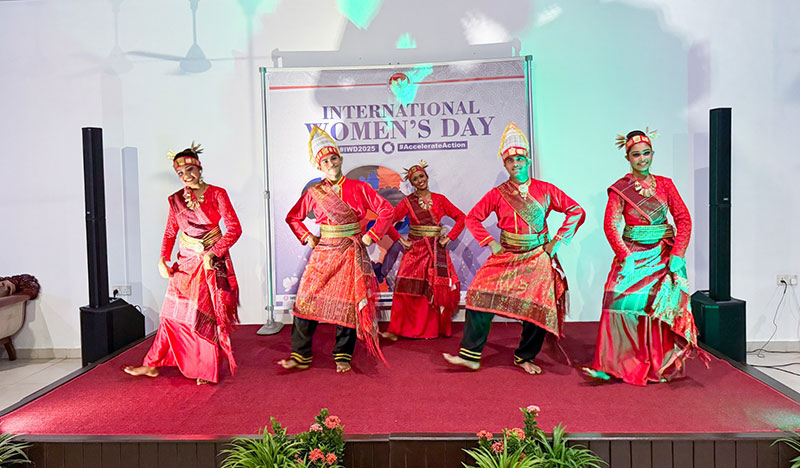
The Embassy of the Republic of Indonesia in sri Lanka hosted the International Women’s Day ceremony at thier residence.
Ambassador of Indonesia Dwi Gustina Tobing invited a large gathering of invitees including the Minister of Women and Child Affairs Saroja Savithri Paulraj who was the Chief Guest. CBL Group Managing Director Sheamalee Wickramasighe, popular musician Umaria Sinhawansa and Stephanie Siriwardena also addressed the gathering. The ambassador looking elegant was busy welcoming the guests at her residence.
An evening of camaraderie, glitz and glamour. The event featured an insightful session aimed to empower women, and served as a tribute to the commitment of women who has contributed immensely. The ambassador in her speech said by celebrating the achievements of women and amplifying their voices, we pave the way for a more inclusive and equitable society, where gender does not hinder opportunity but enriches collective experiences. Here is an excerpt from the ambassador’s speech.
A warm welcome to all of you. It is an honour to host this reception in commemoration of International Women’s Day 2025.
She said ” This year’s theme, “Accelerate Action”, is a powerful call to all of us. It underscores that equality cannot wait, and that all sectors of society must work together to speed up progress in women’s rights and empowerment.”
- CBL group managing director Sheamalee addressing the gathering
- Stephani and Umaria
Around the world, we have seen tremendous strides toward gender equality in politics, economics, and social spheres. Women are increasingly taking up leadership roles, contributing to economic growth, and shaping the future of our societies.
In Indonesia, we are proud of the progress we have made in advancing women’s participation. She said
She reiterated that 127 women were elected to parliament, making up 22.1% of the seats—the highest in our post-reform history. However, this is still below our target of 30%, which means there is room for improvement.
Our new cabinet includes 14 women, both as ministers and deputy ministers, demonstrating our commitment to gender-inclusive governance.
Beyond politics, women are the backbone of Indonesia’s economy. Micro, Small, and Medium Enterprises (MSMEs) contribute over 60% to the national GDP, and 64.5% of these businesses are managed by women.
Additionally, Indonesia ranks among the top four countries globally for female business leaders
She pointed out Sri Lanka, too, has made significant strides in women’s empowerment. When I met with Minister Saroja Savithri Paulraj last week, we discussed the progress Sri Lanka has made in increasing women’s representation in politics and the economy. From women entrepreneurs driving economic growth to initiatives supporting women in leadership, Sri Lanka is showing a strong commitment to gender equality.
Many countries have made progress in advancing women’s empowerment, yet, despite this progress, we must recognize that challenges remain. Women still face barriers to equal pay, leadership opportunities, financial inclusion, and social mobility. Gender-based violence, discrimination, and unequal access to resources continue to hinder the advancement of women in many parts of the world.
This is why collaboration is crucial. By sharing experiences, policies, and best practices, we can accelerate meaningful action to bridge the gender gap.
We must continue working together, fostering partnerships that empower women economically and socially. Indonesia is committed to strengthening collaboration with Sri Lanka and other nations to create more opportunities for women, recognizing their immense importance. Invitees were able to enjoy authentic Indonesian delicacies specially curated by the Ambassador herself.
By Zanita Careem
-

 Sports5 days ago
Sports5 days agoSri Lanka’s eternal search for the elusive all-rounder
-

 News4 days ago
News4 days agoBid to include genocide allegation against Sri Lanka in Canada’s school curriculum thwarted
-

 News6 days ago
News6 days agoGnanasara Thera urged to reveal masterminds behind Easter Sunday terror attacks
-

 Business7 days ago
Business7 days agoAIA Higher Education Scholarships Programme celebrating 30-year journey
-

 Sports13 hours ago
Sports13 hours agoTo play or not to play is Richmond’s decision
-

 News5 days ago
News5 days agoComBank crowned Global Finance Best SME Bank in Sri Lanka for 3rd successive year
-

 Features5 days ago
Features5 days agoSanctions by The Unpunished
-

 Features5 days ago
Features5 days agoMore parliamentary giants I was privileged to know


